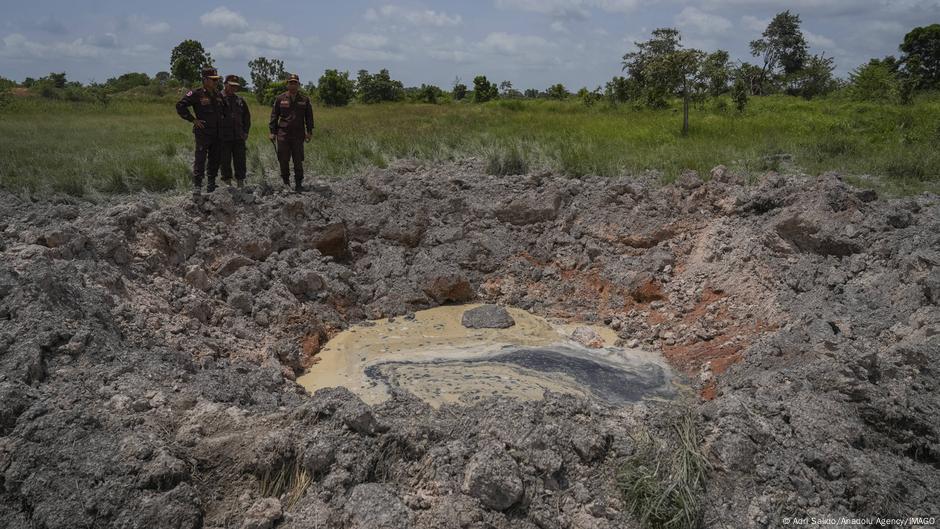
Recent Incident Involves Landmine Explosion Near Thai-Cambodian Border
A landmine explosion near the border between Thailand and Cambodia has resulted in injuries to three Thai soldiers. The incident occurred in Sisaket province, located in northeastern Thailand. According to the Thai army, one soldier suffered a severe leg injury, another was wounded in the back and arm, while the third experienced extreme pressure damage to the ear. This event took place just days after both nations agreed to extend a ceasefire that ended a brief but deadly conflict.
The Thai military stated that the mine explosion highlights the continued presence of concealed weapons in border areas, which they claim violates the Ottawa Convention. The statement emphasized that this situation poses a significant obstacle to the implementation of ceasefire measures and peaceful resolution of disputes.
Responses from Thailand and Cambodia
In response to the incident, the Thai army spokesperson, Maj. Gen. Winthai Suvaree, described the mine explosion as a major setback for the ongoing ceasefire efforts. However, the Cambodian Mine Action and Victim Assistance Authority denied any allegations of planting new mines. Their statement emphasized that Cambodia is a signatory to the Anti-Personnel Mine Ban Treaty and has an internationally recognized record of removing, not deploying, these weapons.
Cambodia further noted that it has cleared over 1 million mines and nearly 3 million pieces of unexploded ordnance left from more than three decades of war and civil unrest starting in 1970. They reiterated their commitment to international law and the prohibition of landmines.
Background on the Recent Conflict
The recent conflict between Thailand and Cambodia involved clashes over ancient border temples and lasted five days, resulting in at least 43 deaths. The fighting included jets, artillery, rockets, and infantry battles. The conflict ended on July 29 with a ceasefire, following diplomatic efforts by U.S. President Donald Trump.
Tensions had been rising since May when a Cambodian soldier was shot dead by Thai troops in a separate contested border area. The dispute led to border crossing restrictions, cross-border boycotts, and bans on goods and services before the violence escalated.
Extension of Ceasefire
A meeting of defense officials in Kuala Lumpur concluded with an agreement to extend the ceasefire. This decision came after several months of simmering tensions and sporadic incidents along the border. The extension aims to prevent further escalation and promote stability in the region.
Understanding the Ottawa Convention
The Ottawa Convention, also known as the Anti-Personnel Mine Ban Treaty, is an international agreement that prohibits the use, stockpiling, production, and transfer of anti-personnel landmines. Both Thailand and Cambodia have committed to this treaty.
Thailand's foreign ministry issued a statement confirming the findings of the Thai army, asserting that new land mines are being laid in violation of international law. They also mentioned that this is the third such incident in less than a month. On the other hand, Cambodia suggested that two previous explosions last month, which injured Thai soldiers, might have been remnants of past conflicts.
This ongoing situation underscores the complex nature of the relationship between Thailand and Cambodia, highlighting the need for continued dialogue and adherence to international agreements to ensure peace and security in the region.
